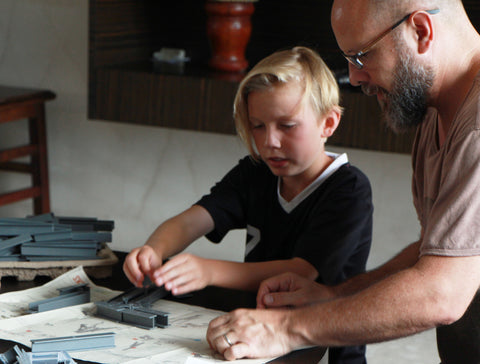Counting Down to Power Up


Today, with the prevalence of technology, even adults struggle with basic addition and subtraction and must pull out their smartphones to successfully drum up an answer, unless of course they have a portable abacus on hand. That being said, the aforementioned arithmetically-challenged adults have already put in the time and could theoretically perform a simple computation exercise with a little extra thought. In younger years, their brains developed the necessary counting and mathematical skills which allowed them do well on the SATs, go onto fulfilling careers, and navigate their lives.
Studies show mastering math skills at a young age has a positive impact later on in life. To start, doing mathematical equations helps kids to develop problem solving skills, and more adaptive ways of thinking about the world.
Let’s not get too ahead of ourselves, though -- we are not saying that 2 year olds should be able to derive Einstein’s Theory of Relativity. The basic act of repeating a number back to an adult, which kid’s can do as young as age 1, jumpstarts the ability to count. The next step is learning the ‘names’ of numbers and being able to repeat in a sequence.
Now comes the fun and more cognitively demanding part—at age 3-4 children start to understand the concept that adding more of something leads to a greater number. Soon enough, they understand the fact that 3 cookies are better than 2!
All of this learning can take place before kids are even in school, so kids enter the classroom ready to learn. Once schooling begins, supplemental play and activities reinforcing math skills are important in order accelerate development.
Let’s help kids to master math at a young age - so they don’t need to reach for smartphone when you tell them to count sheep to fall asleep.





